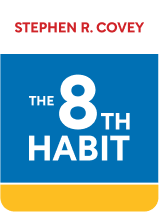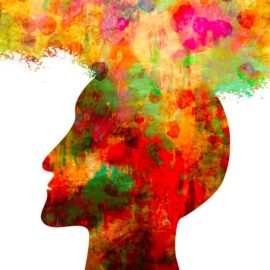

This article is an excerpt from the Shortform book guide to "The 8th Habit" by Stephen R. Covey. Shortform has the world's best summaries and analyses of books you should be reading.
Like this article? Sign up for a free trial here .
What is Stephen Covey’s theory on paradigm shifts? How are they instrumental in how we perceive the world and ourselves?
A paradigm shift is a concept coined by the American physicist and philosopher Thomas Kuhn, and it describes a fundamental change in our beliefs about the world. In his book The 8th Habit, Stephen Covey applies the concept to human development and leadership.
Keep reading to learn about Stephen Covey’s paradigm shift theory.
Understanding the Stages of Human Social Development
To add historical context to the discussion of paradigm shifts, Stephen Covey steps back and examines the progress of human civilization to date. He states that we’ve advanced through four broad stages:
- The Hunter/Gatherer Age
- The Agricultural Age
- The Industrial Age
- The Information Age
Moving between these stages has involved massive upheavals in how we understand the concept of work, which is the core of paradigm shifts.
| Ecological-Evolutionary Theory and Human Social Development The classification system that Covey uses is based on the work of sociologist Gerhard Lenski, who began publishing on “ecological-evolutionary theory” in the 1960s. Lenski categorized human societies according to two factors: their environment, and their technological capabilities. His classification system listed seven types of societies: hunters and gatherers, horticulturalists, fishing societies, herding societies, maritime societies, agricultural societies, and industrial societies. While Lenski’s ideas are often used to argue that more complex societies are morally superior, this wasn’t his intention—rather, he argued that societies that develop new technologies quickly tend to outcompete societies that are slower to do this. |
What Are Paradigm Shifts and Why Do They Matter?
Stephen Covey refers to the transition points between these four stages as paradigm shifts. Stephen Covey’s theory is that we use paradigms—sets of beliefs and attitudes that shape how we look at the world—to explain complex problems to ourselves and each other. For example, a key paradigm shift in astronomy was the Copernican Revolution—when scientists moved from a geocentric understanding of the solar system (Earth as the center of the universe) to a heliocentric one (the sun as the center).
(Shortform note: Kuhn discussed paradigm shifts in his book The Structure of Scientific Revolutions, popularizing the term. Kuhn pointed out that while paradigms help scientists solve certain kinds of problems, they also trap scientific thinking inside a particular framework, meaning that solutions to other problems remain out of reach. This also applies to Stephen Covey’s discussion of workplace and management paradigms.)
Each of the paradigm shifts between these four stages forced workers to discard outmoded beliefs and practices to make way for the new ideas of the incoming stage. People had to learn to deploy completely new skill sets, and those who didn’t were left behind. For example, at the beginning of the Information Age, many people who had previously spent their work day doing manual tasks found that they were now sitting in front of a computer and answering emails or manipulating spreadsheets.
(Shortform note: The shift between the Industrial and Information Ages was partly due to the increasing automation of manual tasks. While this shift led to large-scale job losses in manual labor, it also paved the way for the rise of the service economy and the increasing integration of products with services.)
Stephen Covey points out that many current management practices are hand-me-downs from the Industrial Age, when the goal was to be productive. Too many companies treat people as objects, slot them into rigid hierarchies, and squelch their natural leadership capabilities.
In the great cultural and material shift of the Information Age, we’re aiming for more than productivity alone: We’re pursuing greatness and personal meaning. We’re trying to create the conditions that will unlock our individual and collective brilliance.
(Shortform note: Author and business professor Gary Hamel says that while Industrial Age leaders were focused on the challenges of efficiency and scale, Information Age leaders need to prioritize innovation, adaptability, and resilience.)
According to Stephen Covey, paradigm shifts are pushing us to enter a fifth stage: the Age of Wisdom, in which we’ll be primarily guided by our moral principles and our wish to serve others. Exercising the 8th habit is the key to entering the Age of Wisdom—as individuals, organizations, and leaders.
Stephen Covey: Paradigm Changes Creates Leaders
A change in leadership is the key to organizational success amid these paradigm shifts. Stephen Covey supports this by noting that management and leadership are distinct skills. Management, an Industrial Age skill, deals with objects; leadership, an Information Age skill, inspires people. Both management and leadership are crucial if an organization is to function well. But Stephen Covey sees most organizations today as suffering from a lack of leadership and an excess of management.
An important function of modern leadership is building and supporting strong teams: teams that are made up of people with complementary strengths. In strong teams, members willingly contribute from their strengths and actively compensate for the weaknesses of other team members.

———End of Preview———
Like what you just read? Read the rest of the world's best book summary and analysis of Stephen R. Covey's "The 8th Habit" at Shortform .
Here's what you'll find in our full The 8th Habit summary :
- Why the most important job of a leader is to nurture individuality
- How an organization is like the human body
- Why leaders should let their employees evaluate them






